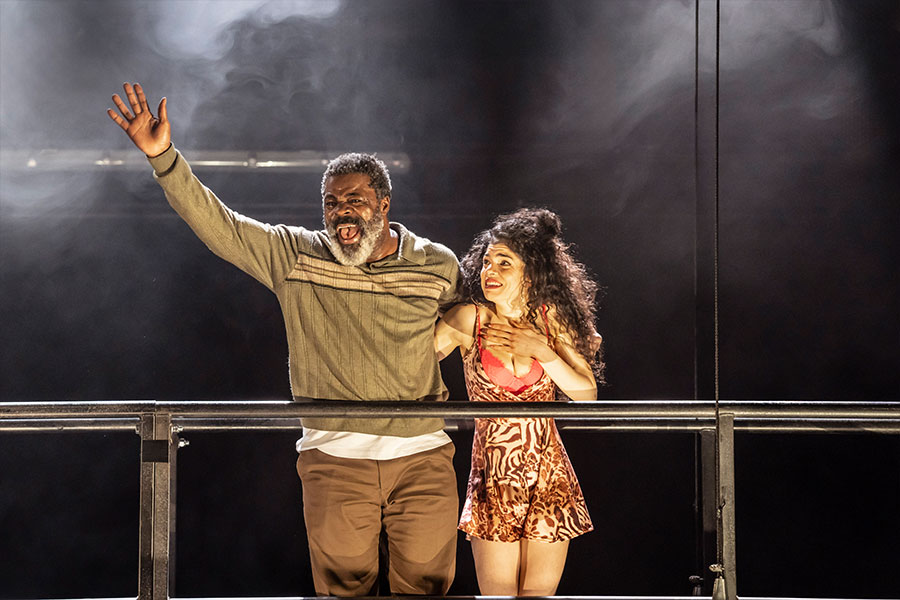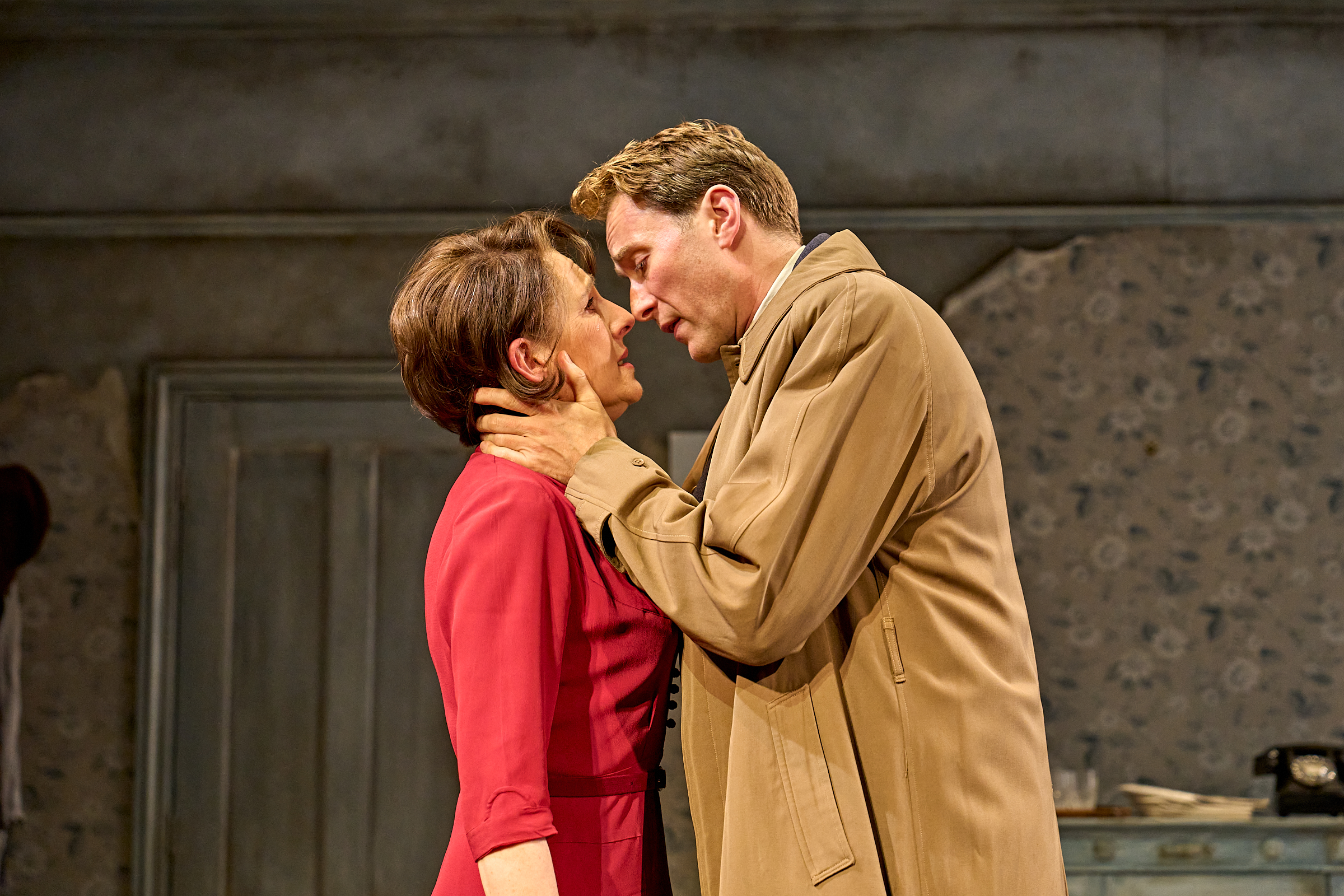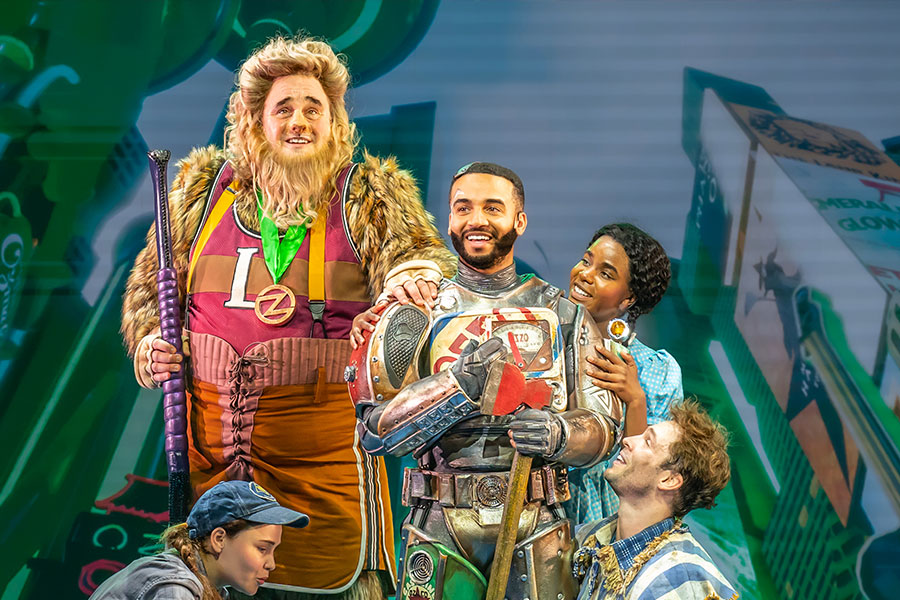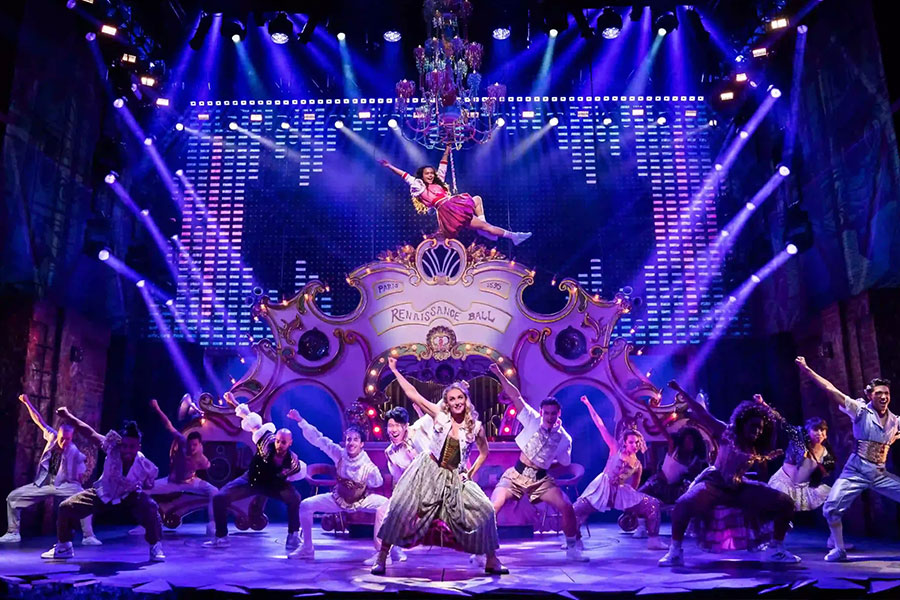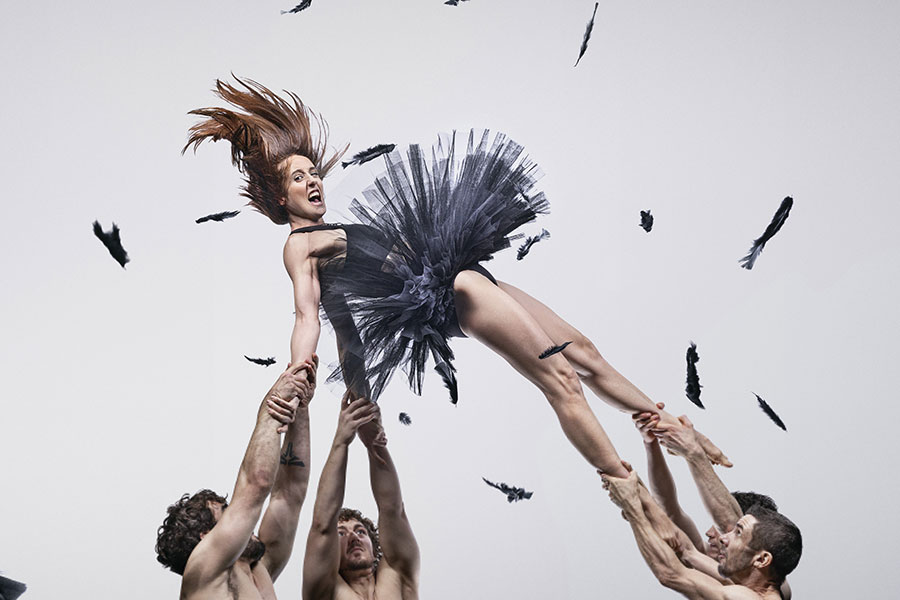Adolf Hitler: My Part In His Downfall (Tour – Salford)
Theatregoers familiar with the work, but not the life, of Spike Milligan may find a number of surprises in this adaptation of his wartime memoirs. Like many of his contemporaries Milligan honed his entertainment skills performing in army revues. It seems strange, however, that someone famous for his anarchic humour should start his career as part of a disciplined jazz quartet.
Without making obvious comparisons director Tim Carroll and his co-writer Ben Power draw out how Milligan’s experiences in the Royal Artillery’s North African and Italian campaigns shaped his irreverent attitude to those in authority and so influenced the creation of such masterpieces as the Goon Show.
The writers have, however, set themselves the difficult task of treating with respect someone who made irreverence his trademark. They have gone so far as to reproduce verbatim many of the tales from the books. The play is structured along the lines of an army revue, with music alternating with comedy routines, but done so in the madcap style of Milligan himself.
As with much of Milligan’s writing, it doesn’t always succeed and there is a sense of cramming in as much variety as possible in the hope that the audience will find something that they like. In a crowded show the writers also make the connection between the war and the clinical depression from which Milligan suffered throughout his life.
Laura Hopkins‘ basic but adaptable set catches the make do and mend attitude of the times in which the play takes place. In a nice touch the backdrop acknowledges the town which the play is visiting and adds a marvellous slapstick climax to both parts of the show.
Sholto Morgan makes his professional debut as Milligan and faces a number of challenges including mastering a musical instrument and hinting at the more troubled aspects of the Goon’s personality. Whilst he is a capable musician and an excellent singer his delivery of the lines is a little uncertain and his lack of inflection drains the humour from some of the jokes, giving the impression that he might not have understood them.
He is given excellent support from the rest of the cast all of whom play instruments but seem more relaxed in their roles. Matthew Devereaux is a dry as dust MC, William Findley the decent but doomed commanding officer and lastly Dominic Gerrard as the charming Edgington permanently clutching a mug of tea is another great performer.
It is perhaps unfair to criticise the play for being disjointed, as the source material upon which it is based is episodic in nature. This does, however, limit the emotional impact of the play and leave you wishing that the producers had shown a little less respect for their hero and taken a few more dramatic risks.
If, however, you can appreciate the atmosphere of the play it becomes a fine tribute to a remarkable talent and very funny, indeed.
– Dave Cunningham




